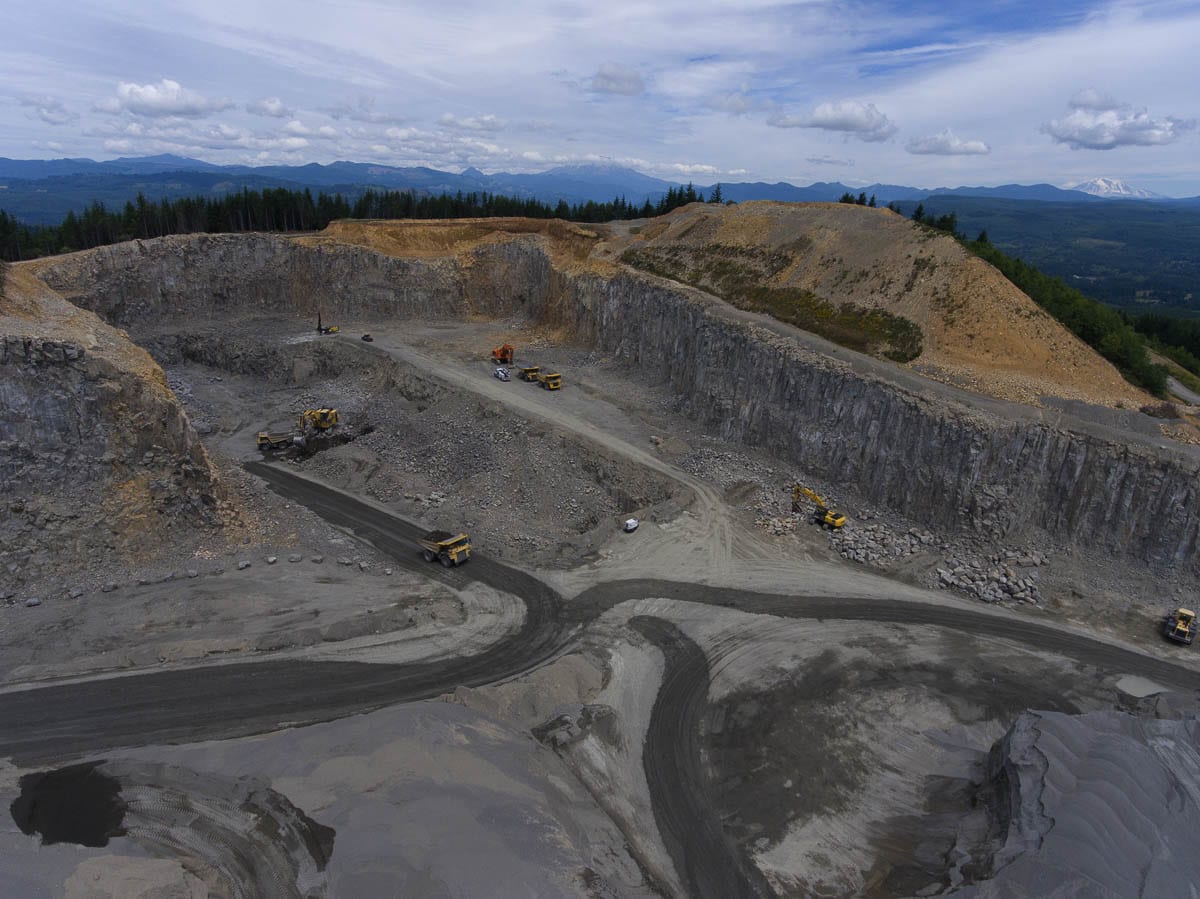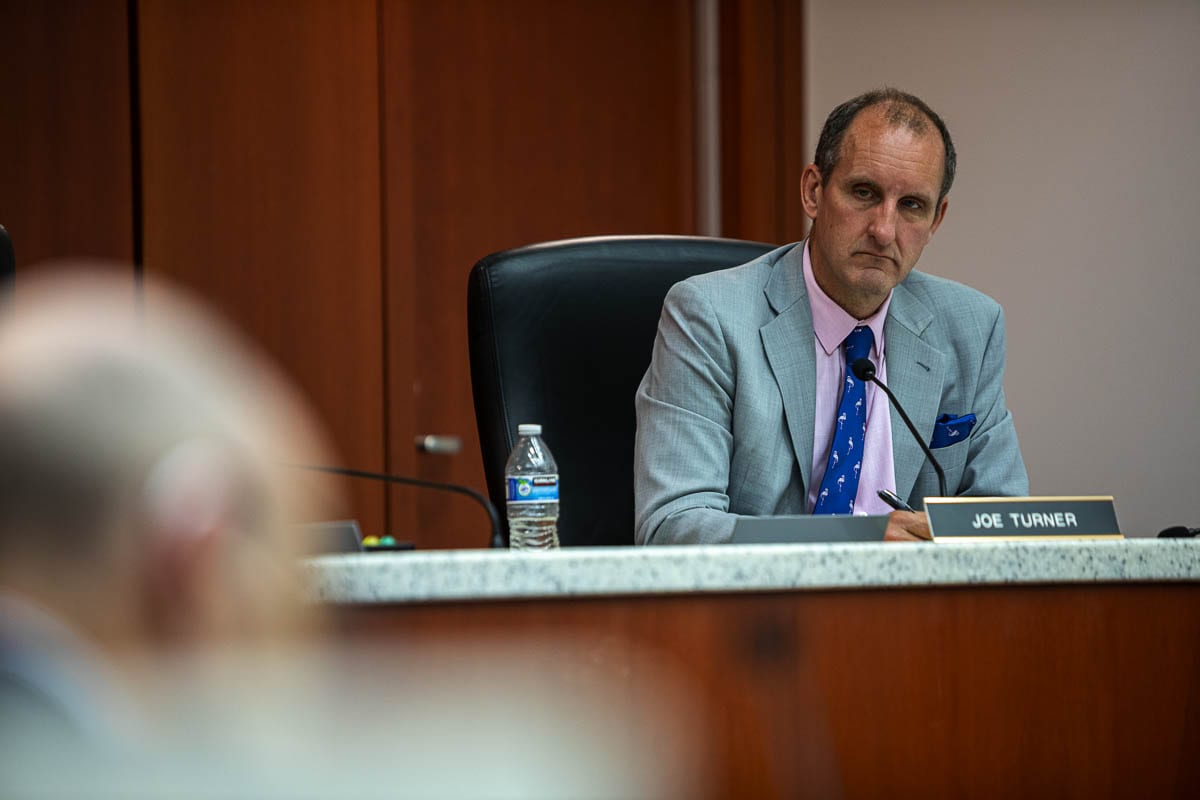JL Storedahl and Sons says when the private sector is open so are they; neighbors and county say the law needs to be followed
YACOLT — After a hearing on Oct. 29, Clark County Hearings Examiner Joe Turner upheld two citations issued to the operators of Yacolt Mountain Quarry by Clark County code enforcement; the north Clark County mine long embroiled in controversy.
During the WebEx hearing, Turner addressed an appeal on the first citation by JL Storedahl and Sons, who operates the gravel pit. The first was issued for blasting after the 5 p.m. cut off earlier this year. The second citation was given for operating the mine on a legal holiday, in this case Presidents Day 2020, which is in breach of the conditional use permit (CUP).

More recently, the quarry was issued another citation for operating on Veterans Day 2020, which incurred a fine of $1,000. The operator initially pointed out discrepancies in which holidays required cessation of operations in the Yacolt Mountain CUP as compared to Washington law and other quarries in Clark County.
“We defer to the RCW’s, and look for what they describe in the RCW’s as legal holidays,” said Clark County Code Administration Director, Mitch Nickolds. “That’s generally inclusive of all the named holidays that you can think of, including Memorial Day, Veterans Day. Fourth of July, Independence Day, and on and on.”
The discrepancies between the documents on legal holidays was amended through communication from county code enforcement. The min operator’s complaint that other quarries in the county, such as Livingston Mountain, do not have the same stipulations in their CUPs has yet to be addressed.
The county issued the citations for Presidents and Veterans Days after receiving complaints from neighbors in the area. The mine operator expressed the position that the quarry is often ‘unable to close’ on these holidays since the private sector, chiefly the construction industry, does not.
“I didn’t believe it was the intent of the hearings examiner that issued the CUP at mountain top to really make the pitch shut down on legal holidays that the private sector doesn’t take off,” said Bo Storedahl, a representative for JL Storedahl and Sons. “It didn’t really set any sort of precedent because later CUPs don’t have that language.”

Storedahl explained that moving forward on the issue, he does not intend to appeal future holiday citations, and as a result did not appeal the most recent instance on Veterans Day.
“The three holidays that are going to conflict with the private industry are Presidents Day, Veterans Day, in Martin Luther King Day,” Storedahl said. “At this point going forward, unless the industry decides to take those days off, we have every intention of continuing operation on those days.”
The current citation fine is $500 for the first offense and then $1,000 for each after that. Nickolds said that if the quarry were to continue to simply pay the fine, he would consider having county staff draft revisions to the permit enacting stricter penalties.
“If our efforts to issue notices and assess penalties, don’t have the deterrent effect that they’re designed to have, I think the remedy for us would be to look at the CUP,” Nickolds said. “And determine whether or not that the CUP would need to be reviewed to reinforce or to provide a more substantial deterrent.”
On the environmental and neighborhood advocacy side, the East Fork Community Coalition (EFCC) posted the findings of the hearings examiner on their Facebook page. The group has been engaged in many verbal and written battles over issues with the mountaintop quarry in recent years.
“It’s hard for me to understand how there is any ambiguity after having read the hearing examiner’s findings,” said EFCC President, Dick Leeuwenburg. “I mean, I don’t know, they just consider the cost of doing business now to pay the county fines. It’s just really strange. You just put that price or the fine in there, and it’s just an expense like diesel for the front loader. It just totally disregards why those conditions were put in there in the first place and disregards the local community.”
The second citation discussed in the Oct. 29 hearing focused on an incident of blasting at the mine that occured after the 5 p.m. cutoff time on Fri., Feb. 14. Storedahl explained that the appeal of the infarction was not intended to dispute that it happened but rather to expand the unique circumstances that lead up to the evening blast.
Essentially, the third-party company hired by the operator to place the explosives in the ground experienced an equipment issue at approximately 4:30; after explosives had already been laid. The issue was resolved, but not until 5:10, according to Storedahl.
“We were left with a situation where we either blast at 5:20 or leave the explosives in the ground over the entire weekend, which I didn’t feel was safe,” Storedahl said. “It was just something that kind of went wrong at the last minute, and we blasted after 5:00, due to that fact that we didn’t want to leave those explosives around over the weekend.”
During the appeals hearing, Turner said he understood the operators concerns with regard to safety, but could not absolve them of responsibility for the fine, while also pointing to a possible need to revise the CUP for unforeseen circumstances.
“There is a go, no-go point, where you’ve got a charge in the ground wire ready to go, and stopping at that point or doing anything other than detonating is too risky to do,” Nickolds said. “You can mitigate that by having a process or adding process to the CUP that says, ‘If this circumstance arises or other similar circumstances, the director is authorized to make a decision based on facts and review the facts and circumstances.’”
To neighbors and community advocates, they say it felt like a situation that could have been avoided by better planning and preparation.
“It was totally preventable. I mean, we’re not talking to novices here. They’ve been running that quarry for at least a decade and a half,” Leeuwenburg said. “If I had an important meeting I needed to go to, and I was enroute and suddenly found that there was road maintenance and it was caused me to be late, and when I got through that I just stomped on the gas because I needed to get going, I’ve got a traffic ticket. Would the judge just say, ‘Well, gosh, I can sure understand that extenuating circumstances. Sure, go 70 miles an hour in a 50 mile zone?’ That’s what they’re asking for.”




